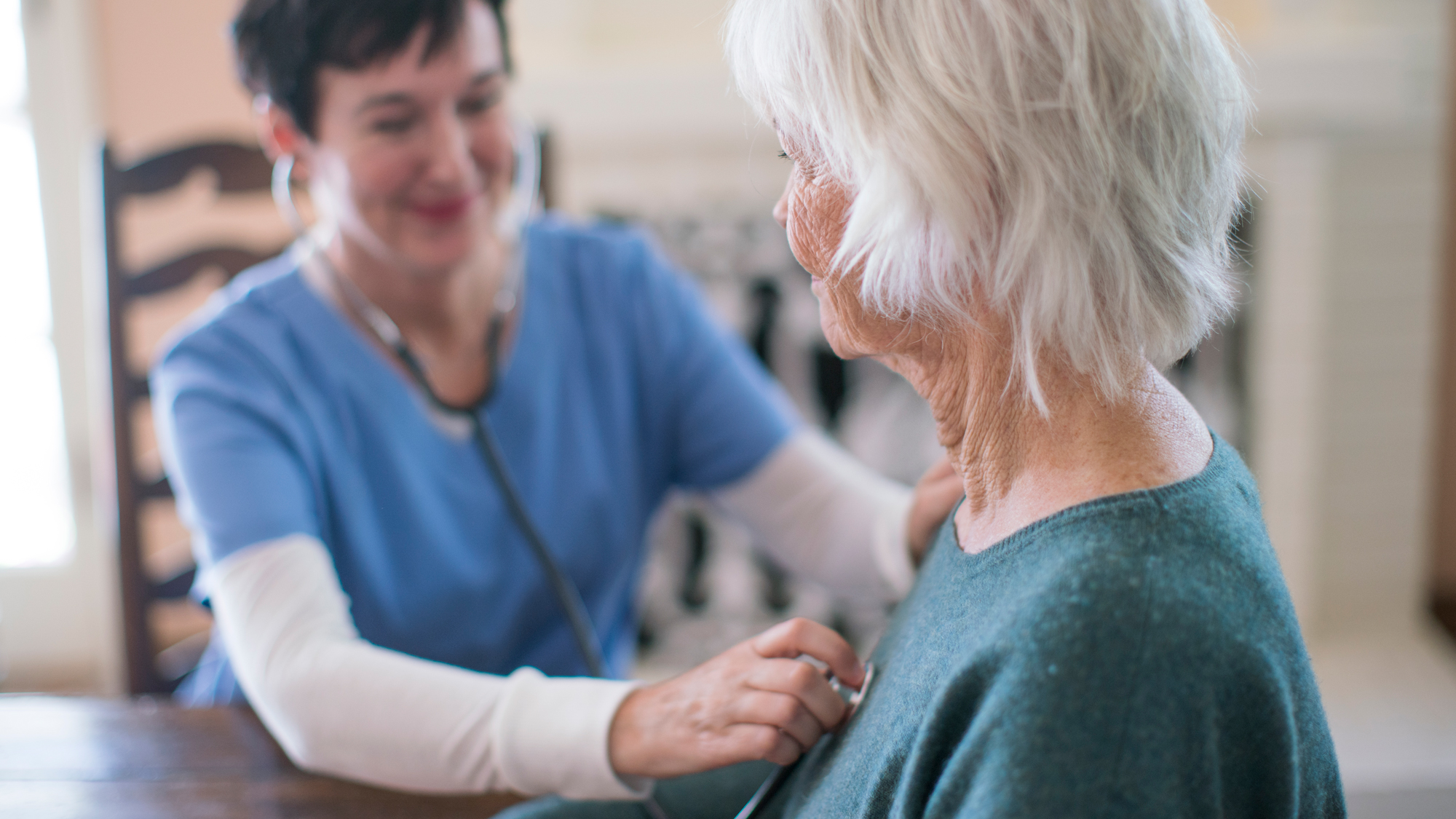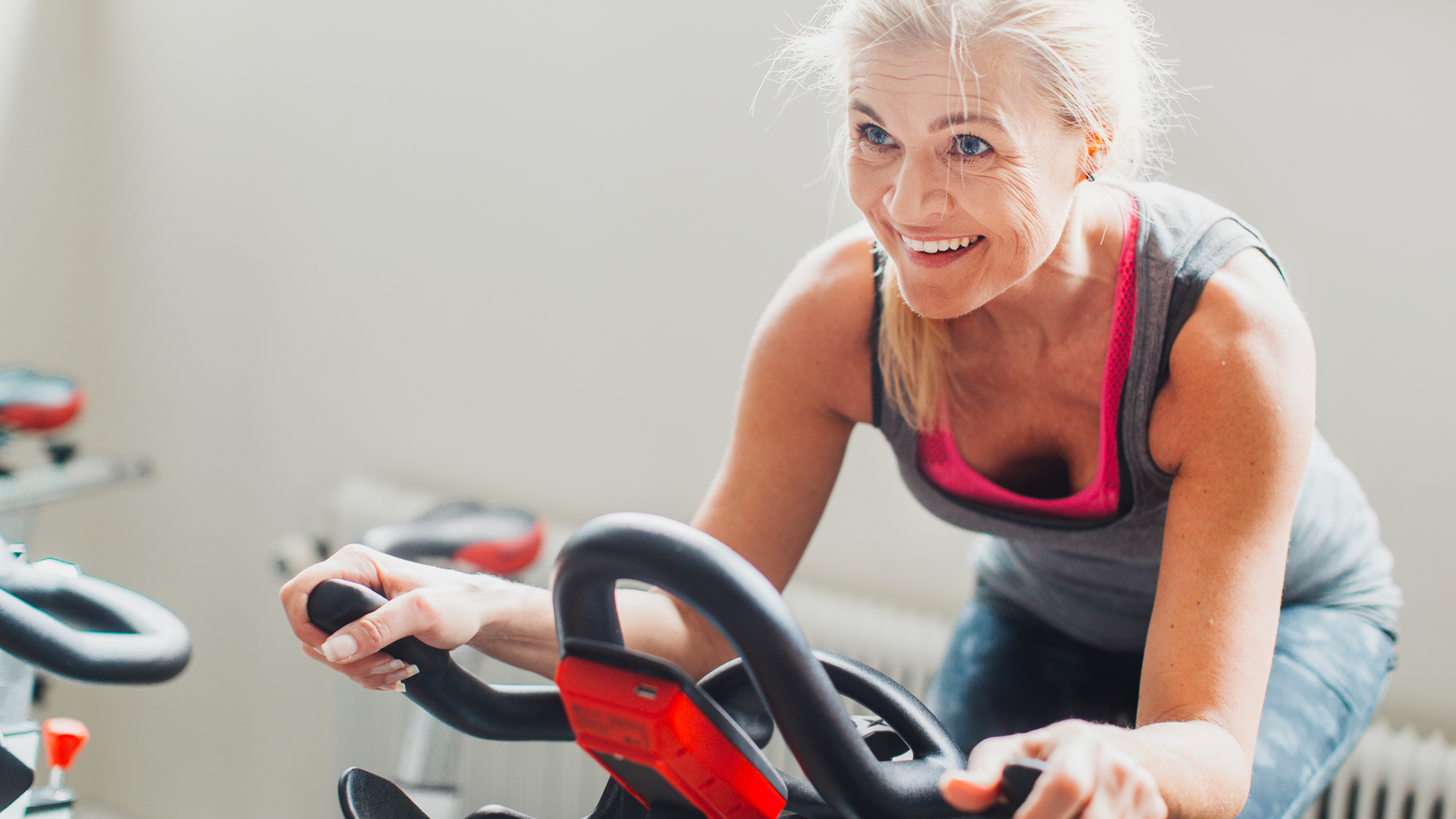The relationship between heart disease and menopause, according to research
Your period cycle length before going through menopause could indicate your risk of developing cardiovascular disease


Women transitioning through menopause experience various different symptoms such as, hot sweats, night sweats, mood swings, chills and weight gain. While these are undesirable symptoms suffered by many, there is another menopausal health risk that might not have been on your radar - which is cardiovascular disease.
The more commonly known symptoms can play havoc with day-to-day life hence why many women resort to taking things like the best menopause supplements to try and reduce the intensity of side effects.
In the meantime, science has been looking more closely into cardiovascular health among menopausal women to find out if they can better inform prevention strategies.
Researchers at the University of Pittsburgh released a study, revealing that the duration of a woman's menstrual cycle leading up to the menopausal transition could indicate how at risk they are of developing heart disease.
The study was published in the Menopause journal and found that women whose cycle length increased two years prior to their last menstrual period had better cardiovascular health than women who had more stable cycle lengths during this same period.
The lead author of the study Samar El Khoudary said, “Cardiovascular disease is the No. 1 killer of women, and the risk significantly increases after midlife, which is why we think that menopause could contribute to this disease.”

The data shows that women with regular cycles prior to no longer havig a period due to menopause have a higher risk of cardiovascular disease compared to women with longer gaps between bleeding.
Start your week with achievable workout ideas, health tips and wellbeing advice in your inbox.
El Khoudary said they couldn't confirm why this was the case but the findings suggest that high oestrogen may protect cardiovascular health in young women with short cycles, meanwhile the hormone could be less protective in older women.
Claire Snowdon-Darling, menopause and hormones expert, Head of The College of Functional Wellness and founder of kinesiology clinic, Balanced Wellness told us that bleed regularity is created by the amount of oestrogen we have in the body with lower levels causing gaps.
“The study posits that oestrogen is more beneficial in younger women than in more mature women. I would argue that this isn’t necessarily the case and more about what “type” of oestrogen is dominant in the body,” says Snowdon-Darling.
She explains that one common hormone imbalance in women is caused by ‘Xeno-oestrogens’, which are compounds that mimic oestrogen in the body and are created by exposure to pollution, plastics, pesticides, stimulants, toxic chemicals and blood sugar imbalances.
Therefore, Snowdon-Darling says you should ensure you have the right oestrogen in your body to make sure you are looking our for your cardiovascular health. Here are three tips from the menopause and hormones expert:
- Keep blood sugars stable. This stops the stress hormone cortisol and the blood sugar hormone insulin becoming imbalanced and contributing to inflammation in the body which also causes xeno-oestrogens.
- Exercise. We all know that getting out of breath helps keep our heart healthy but exercise also promotes the happy hormones “endorphins” and also reduces our blood sugars. Making a daily habit of walking can help you to feel the benefits that regular exercise can have on your health - a pair of best walking shoes for walking might help to motivate you getting out the door.
- Eat a diet rich in good fats. Omega 3 from fish and seaweed is an essential fatty acid that contributes to good cardiovascular health. Avoid Omega 6 & 9 as these contribute to inflammation
Jessica is an experienced fitness writer with a passion for running. Her career in journalism began in local news and she holds a Masters in journalism. Jessica has previously written for Runners World, penning news and features on fitness, sportswear and nutrition.
When she isn't writing up news and features for Fit&Well covering topics ranging from muscle building, to yoga, to female health and so on, she will be outdoors somewhere, testing out the latest fitness equipment and accessories to help others find top products for their own fitness journeys. Her testing pairs up nicely with her love for running. She recently branched out to running 10Ks and is trying to improve her time before moving on to larger races. Jessica also enjoys building on her strength in the gym and is a believer in health and wellness beginning in the kitchen. She shares all of this on her running Instagram account @jessrunshere which she uses for accountability and for connecting with like-minded fitness lovers.
